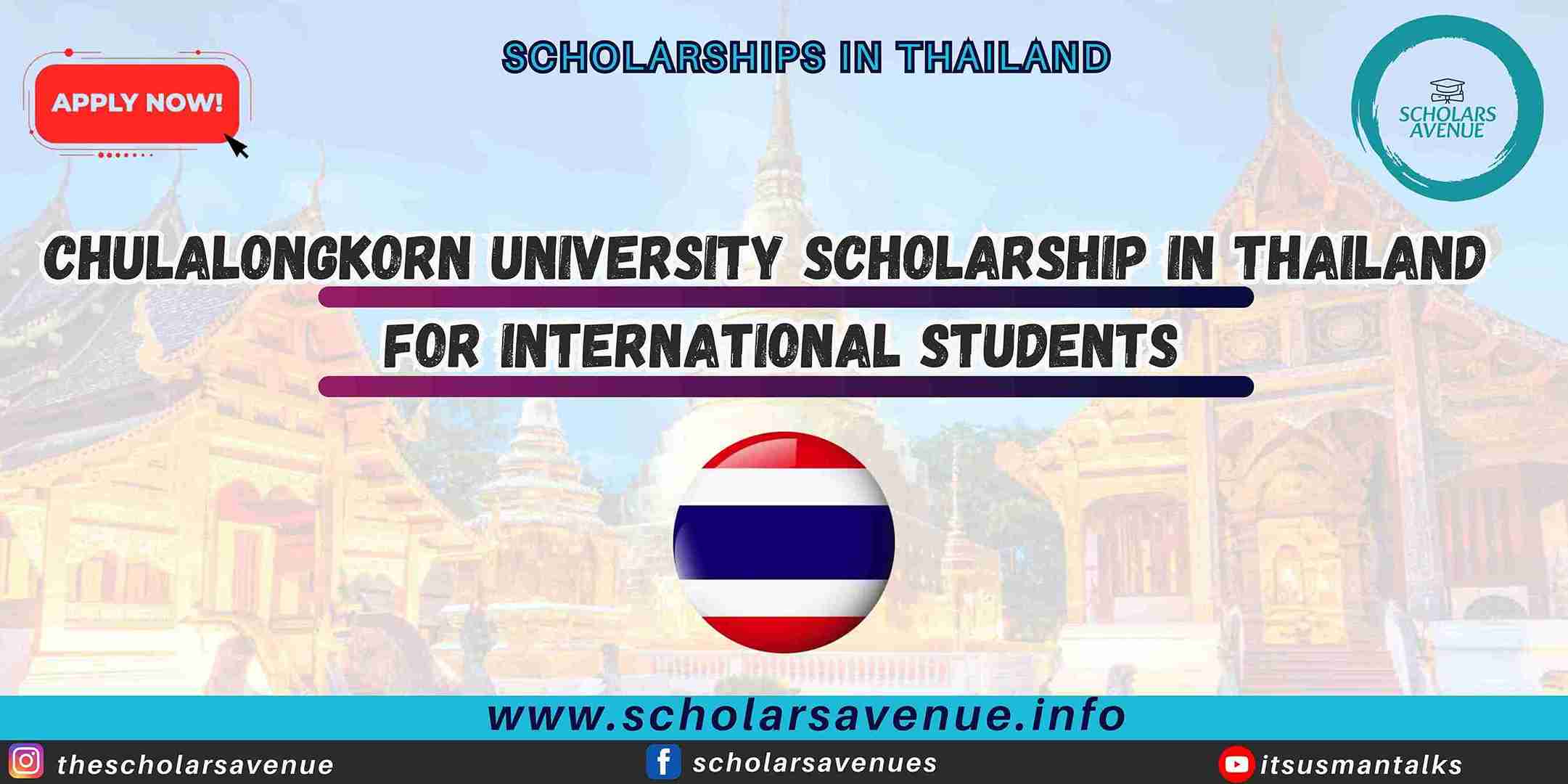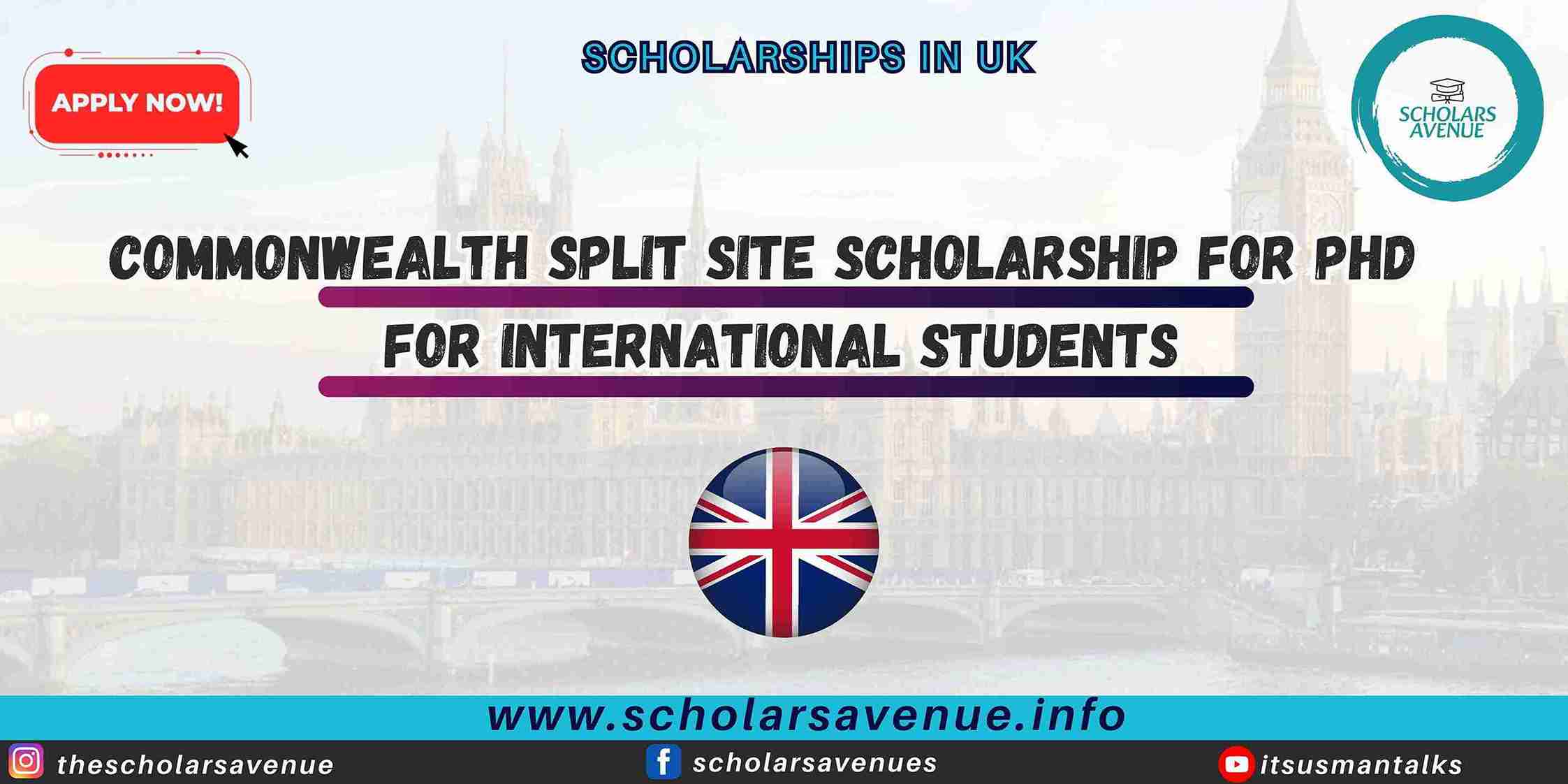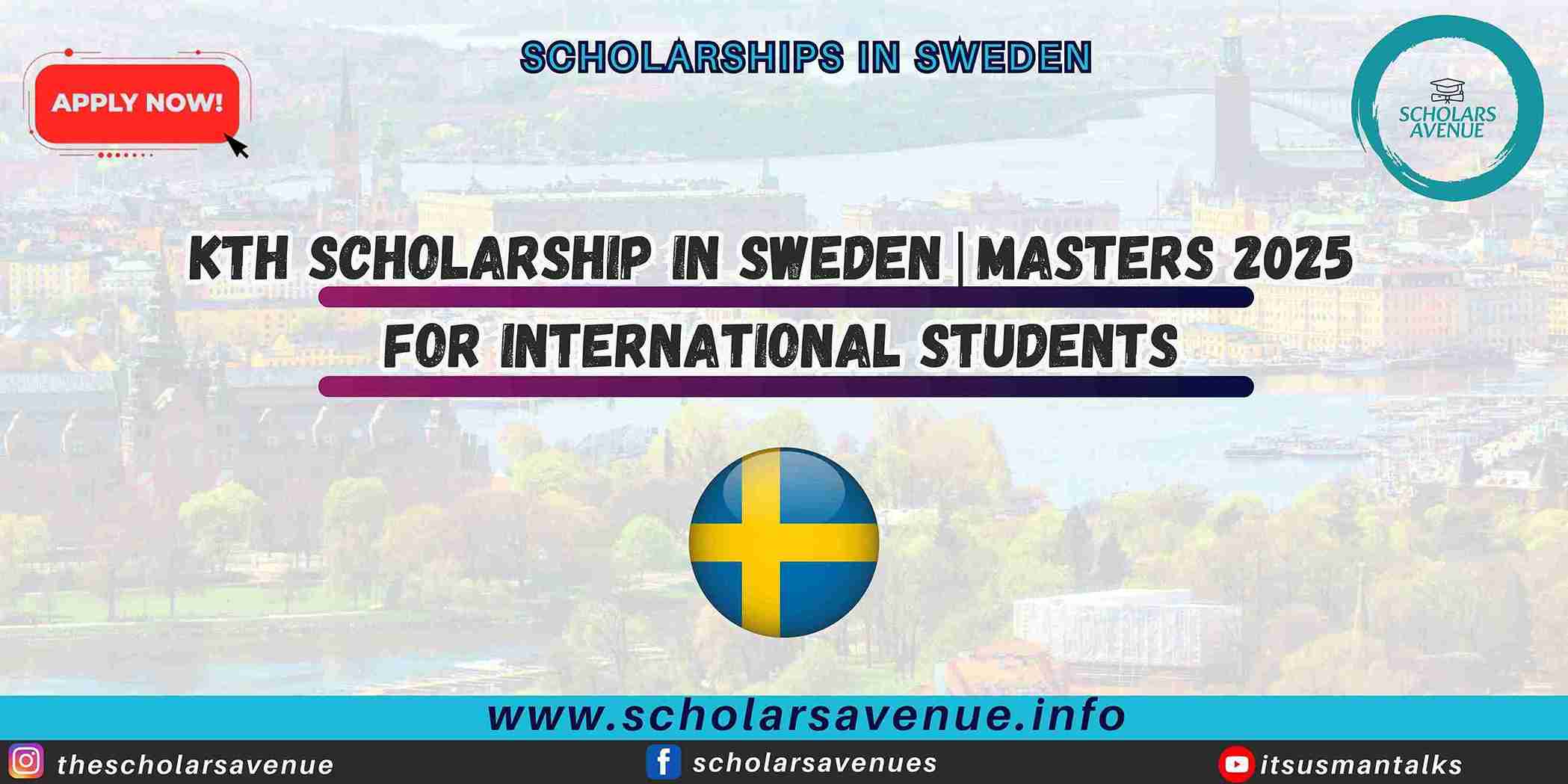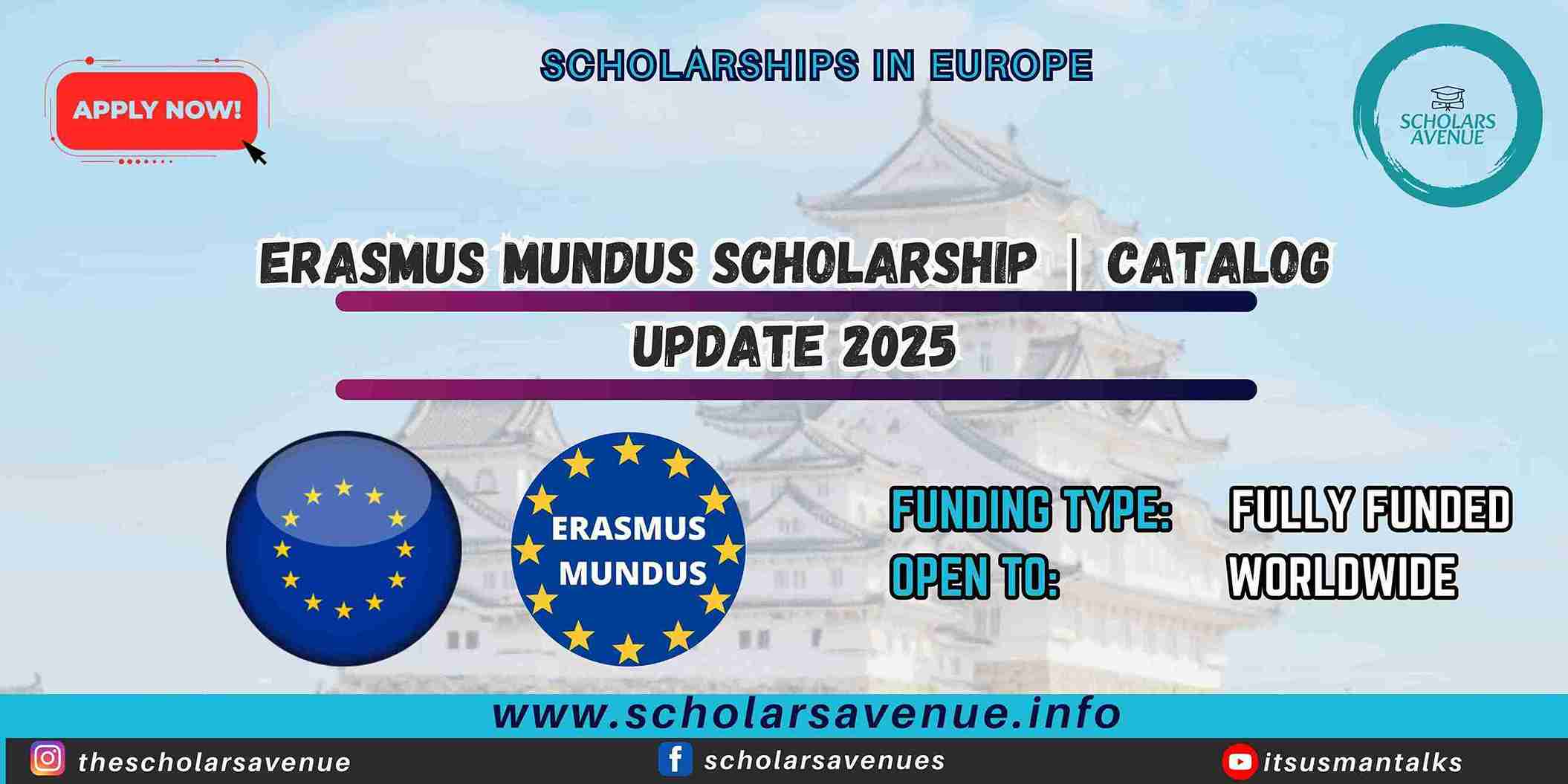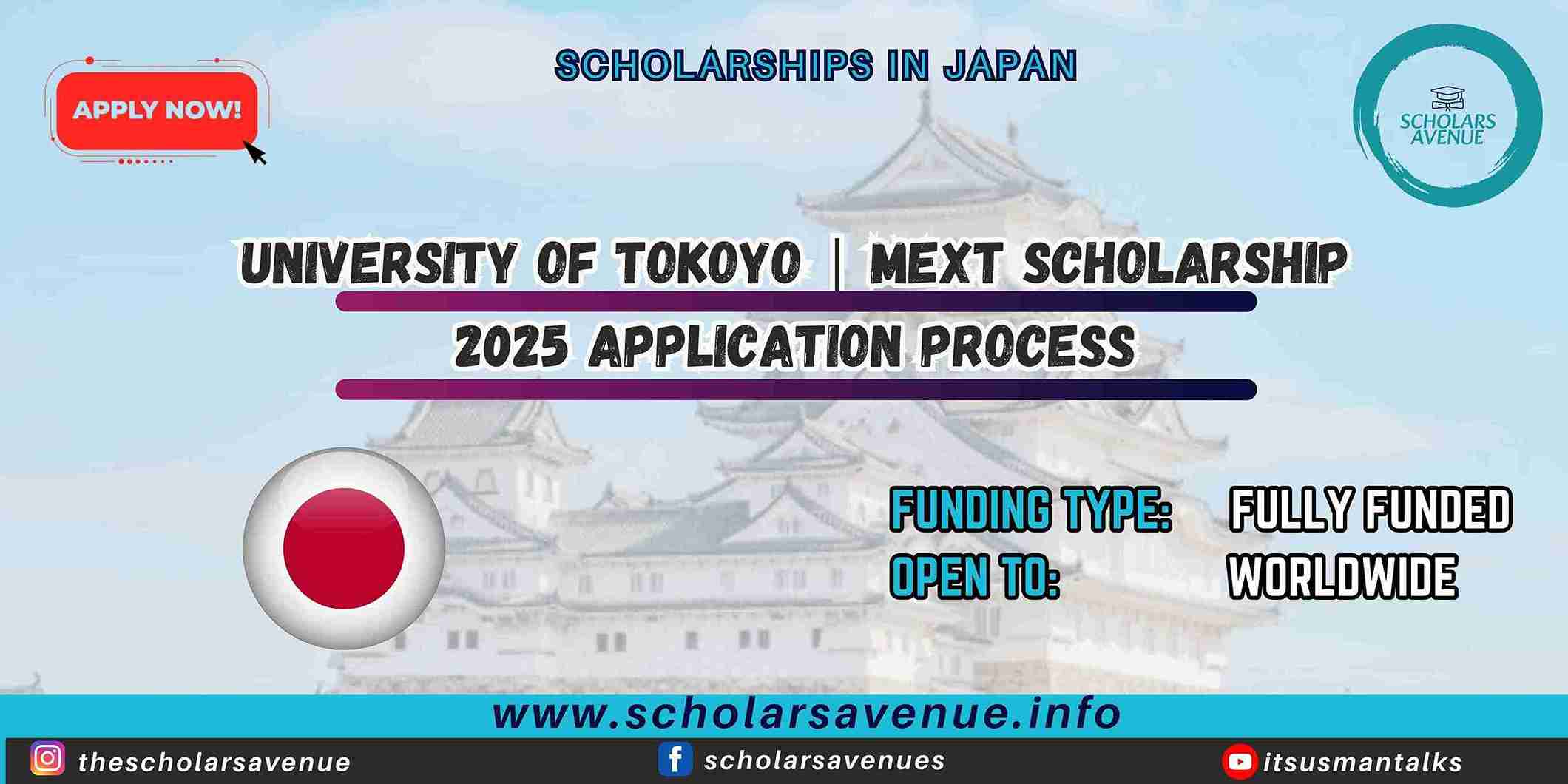If you have a bachelors in chemistry or relevant fields like materials science and Georesources engineering to environmental studies and biomedical engineering and are looking for a fully funded masters in Europe, Erasmus Mundus has got you covered. Here is a detailed overview of all the Erasmus Mundus Chemistry programs, highlighting the relevant bachelor’s degrees needed to pursue each program. Now you can easily navigate your options and find the perfect fit for your academic and career goals.
Also check, University of Western Australia Scholarships
List of Erasmus Mundus Chemistry Programs
1. Emerald Master in Geo Resources Engineering
Focuses on the management and sustainable use of Georesources, integrating knowledge from geology, mining, and metallurgy.
Bachelor’s Degrees: Geology, Applied Sciences (Mining, Metallurgy, Chemistry)
2. SMACCs – MSc in Smart Cities and Communities
This program aims to design and implement smart city concepts, combining engineering and sciences to innovate urban planning and development.
Bachelor’s Degrees: Engineering (Mechanical, Chemical, Electrical, Civil, Environmental, Architectural), Sciences (Physics, Chemistry, Mathematics, Computer Science), Economics with Engineering background.
3. MULTIPHASE – Multiphase Systems for Sustainable Engineering
Covers the physico-chemistry of multiphase systems and their applications in sustainable engineering, emphasizing eco-efficiency and computational modeling.
Bachelor’s Degrees: Physico-Chemistry, Chemical Engineering, High Performance Computing and Machine Learning.
4. SARENA – Safe and Reliable Nuclear Applications
Focuses on nuclear engineering and the safety of nuclear installations, combining technical and regulatory aspects.
Bachelor’s Degrees: Engineering, Physics, Chemistry, Environmental Sciences.
5. i-MESC (Interdisciplinarity in Materials for Energy Storage and Conversion)
This is among the Erasmus Mundus chemistry programs specializing in materials science for energy storage and conversion, incorporating aspects of chemistry, physics, and engineering.
Bachelor’s Degrees: Chemistry, Physics, Chemical Engineering, Materials Science, Material Process Engineering, or Modeling applied to Electrochemistry.
6. EMOTION – European Master of Science in Skin Health and Care
This program is one of the Erasmus Mundus chemistry programs combining biology and chemistry to advance research and innovation in skin health and cosmetic science.
Bachelor’s Degrees: Background in both Biology and Chemistry.
7. GREENANO – Nanomaterials for Green and Digital Transitions
Focuses on the development and application of nanomaterials to support sustainable and digital transitions.
Bachelor’s Degrees: Physics, Materials Science, Chemistry, Engineering, Nanoscience.
8. Europhotonics
This program offers advanced training in optics and photonics, with applications ranging from imaging and telecommunications to medical technology.
Bachelor’s Degrees: Physics, Optics & Photonics, Electrical Engineering, Mechanical Engineering, Physical Chemistry, Applied Physics.
9. IMSOGLO – International Master of Science in Soils and Global Change
The program focuses on soil science and the global changes affecting soil ecosystems, including environmental and agricultural aspects.
Bachelor’s Degrees: Pure or Applied Sciences (e.g., Chemistry, Biology, Geology, Physical Geography, Geo-Ecology, Civil or Agricultural Engineering, Environmental or Agricultural Sciences).
10. Master’s in Sustainable Systems Engineering (EMSSE)
Emphasizes sustainable engineering practices in energy and environment, covering multiple disciplines in engineering and sciences.
Bachelor’s Degrees: Computer Engineering, Electronic Engineering, Control Engineering, Management Engineering, Biomedical Engineering, Chemical Engineering and others.
11. Human Diseases Models Morphological Phenotyping (MorphoPHEN)
Focuses on developing models for human diseases, integrating aspects of biology and phenotypic analysis.
Bachelor’s Degrees: Biology, Biochemistry, Biotechnology, Pharmacy, Veterinary or Medicine.
12. Erasmus Mundus Master in Biomedical Engineering (EMMBIOME)
Provides advanced training in biomedical engineering, covering bioengineering, mechanical, and electrical engineering aspects.
Bachelor’s Degrees: Biomedical Engineering, Bioengineering, Mechanical Engineering, Electrical Engineering, Chemical Engineering, Materials Science, Biochemistry, Molecular Biomedicine.
13. Hydrogen Systems and Engineering Technologies (HYSET)
Specializes in hydrogen systems and technology, focusing on sustainable energy solutions.
Bachelor’s Degrees: Mechanical Engineering, Energy Engineering, Chemical Engineering, Chemistry, Electrical Engineering, Aeronautical Engineering, Physics, Industrial Engineering.
14. Master in Materials Science Powered by Large-Scale Facilities (MaMaSELF)
Provides interdisciplinary education in materials science with access to large-scale research facilities across Europe.
Bachelor’s Degrees: Materials Science, Physics, Chemistry, or related disciplines.
15. Master in Membrane Engineering for Sustainable Development
Focuses on membrane technology and its applications in sustainable development, particularly in water treatment and renewable energy.
Bachelor’s Degrees: Chemistry, Physics, Materials Engineering, Chemical Engineering, Bio-Chemical Engineering.
16. ARCHMAT EMJM
Combines archaeology with materials science, offering insights into cultural heritage and conservation techniques.
Bachelor’s Degrees: Physics, Earth Sciences, Chemistry, Biology-Biochemistry, Engineering, Humanities (Archaeology, Conservation Science, Cultural Heritage Studies, Architecture, Art History).
17. FAME – Functional Advanced Materials Engineering with AI for Sustainability
Focuses on advanced materials engineering, incorporating artificial intelligence for sustainable solutions.
Bachelor’s Degrees: Science or Technology or Engineering (Physics, Chemistry, Metallurgy, Materials Science, Electrochemistry, and related fields).
18. IMATEC – International Master in Technology and Management for Circular Economy
Integrates technology and management principles to promote circular economy practices, emphasizing sustainable resource use.
Bachelor’s Degrees: Chemical Engineering, Chemistry, Industrial Chemistry, Environmental Engineering.
19. NeuroData – Erasmus Mundus Joint Master Degree Programme in Brain and Data Science
Combines neuroscience and data science to address complex issues in brain research and cognitive science.
Bachelor’s Degrees: Brain Sciences, Life Sciences, Exact Sciences (Mathematics, Physics, Chemistry, Engineering, Computer Sciences), Psychology and Cognitive Sciences.
20. International Master of Science in Fire Safety Engineering
Offers specialized training in fire safety engineering, focusing on risk assessment and the design of safe buildings.
Bachelor’s Degrees: Civil, Structural, Mechanical, Electrical, Chemical, Industrial Engineering, Material Sciences, Chemistry, Physics, Applied Physics, Architecture, Urbanism, and Spatial Planning.
21. Erasmus Mundus Joint Master Degree in Planetary Geosciences – GeoPlaNet
Explores the physical and chemical processes shaping planets, integrating geology and astrophysics.
Bachelor’s Degrees: Earth Science, Physics, Mathematics, Astrophysics, Geology, Geospatial Sciences and Engineering.
22. PROMISE – Sustainable Mineral and Metal Processing Engineering
Focuses on sustainable practices in mineral and metal processing, integrating environmental and economic considerations.
Bachelor’s Degrees: Mining, Metallurgy, Chemical Engineering, Environmental Engineering, Georesources.
23. Sustainable Biomass and Bioproducts Engineering
Focuses on the sustainable engineering of biomass and bioproducts, including chemical and environmental applications.
Bachelor’s Degrees: Chemical, Environmental, and Mechanical Engineering, or related fields.
24. ChEMoinformatics
This program is one of the Erasmus Mundus Chemistry Programs covering computational methods for chemical research, integrating mathematics, computer science, and chemistry for data-driven chemical analysis.
Bachelor’s Degrees: Chemistry, Physical-Chemistry, Biochemistry, with at least 20 ECTS in mathematics, computer science, or physics, and 70 ECTS in related chemistry fields.
25. Advanced Materials for Innovative Recycling (AMIR-EM)
Focuses on recycling processes and materials innovation, aiming to develop skills in sustainable materials management.
Bachelor’s Degrees: Chemistry, Materials Science, Engineering, with a background in innovation and entrepreneurship.
26. International Master in Sustainable Drug Discovery
Specializes in the sustainable development of new drugs, integrating pharmaceutical sciences, chemistry, and biology.
Bachelor’s Degrees: Pharmaceutical Sciences, Chemistry, Biology, Bioengineering, Medicine, Biomedical Sciences, or equivalent fields.
27. IMETE
This program is one of the Erasmus Mundus Chemistry Programs focusing on environmental technology and engineering, providing expertise in chemistry, biology, and environmental sciences.
Bachelor’s Degrees: Pure or applied sciences such as chemistry, biology, geology, civil or agricultural engineering, environmental or agricultural sciences.
28. ChIR – Chemical Innovation and Regulation
This is one of the famous Erasmus Mundus Chemistry programs covering chemical innovation and regulatory science, focusing on sustainable chemical development and safety.
- Bachelor’s Degrees: Chemistry, Biology, Pharmaceutical Sciences, Biochemistry, Environmental Engineering, Chemical Engineering, Food Engineering, Clinical Analysis, Medicine, or related fields.
29. AquaH
Specializes in aquatic health and the management of water systems, with an emphasis on interdisciplinary scientific training.
Bachelor’s Degrees: Science training in at least five out of seven: Mathematics, Physics, Chemistry, Biochemistry, Biology, Microbiology, Engineering.
30. IMBRSea
Focuses on marine biological resources, integrating aspects of marine ecology, conservation, and management.
Bachelor’s Degrees: Biology, Ecology, Environmental Sciences, Oceanography, Marine Sciences, (Bio)Chemistry, Biotechnology, Geography, Geology, or equivalent degrees.
Also check, University of Bologna Scholarships
31. Master in Applied Ecohydrology (MAEH)
Combines engineering and natural sciences to address challenges in water science and ecohydrology.
Bachelor’s Degrees: Natural Science or Engineering, including biologists, bioscience engineers, chemists, civil engineers, environmental scientists, and geologists.
32. Management and Engineering of Environment and Energy
Focuses on energy management and environmental engineering, with applications in sustainable technology.
Bachelor’s Degrees: Mechanical Engineering, Chemical Engineering, Energy Engineering, Electrical Engineering, Civil Engineering, Environmental Engineering, with a background in Mathematics, Chemistry, Physics, Thermodynamics, Heat Transfer, and Fluid Mechanics.
33. MedFOR
Addresses challenges in Mediterranean forestry, focusing on biodiversity and sustainable resource management.
Bachelor’s Degrees: Biological Sciences, Environmental and Earth Sciences, Mathematics, Economics, Engineering, Chemistry, Biochemistry, or related fields.
34. Marine Environment
Focuses on marine sciences, integrating biosciences, chemical sciences, and geosciences for oceanic research.
Bachelor’s Degrees: Biosciences, Chemical Sciences, Geosciences, Physical Sciences, and Engineering.
35. Nuclear Fusion and Engineering Physics (FUSION-EP)
Specializes in nuclear fusion technology and engineering physics, with applications in energy research.
Bachelor’s Degrees: Physics or Engineering (Nuclear, Materials, Chemical, Electrical).
36. FIPDes – Food Innovation and Product Design
Combines food science, technology, and design to develop innovative food products.
Bachelor’s Degrees: Food Science and Technology, Biotechnology, Process Engineering, Biochemistry, with prerequisites in Chemistry, Biotechnology, Process Technology, Mathematics, and Statistics.
37. NANOMED
Focuses on nanomedicine, exploring nanotechnologies for medical applications.
Bachelor’s Degrees: Medicine, Chemistry, Biology, Biotechnology, Chemical Engineering, Biochemistry, Material Sciences, Pharmacy, or Pharmaceutical Technology.
38. Neurasmus – European Master in Neuroscience
Provides interdisciplinary training in neuroscience, integrating biology, biochemistry, and psychology.
Bachelor’s Degrees: Biology, Pharmacy, Biochemistry, Biomedical Sciences, Medical Studies, Psychology. Candidates from other fields must demonstrate interest in neuroscience.
39. NucPhys
Specializes in nuclear physics, combining theoretical and experimental approaches.
Bachelor’s Degrees: Physics. Related areas such as Chemistry, Engineering, Applied Mathematics, or other scientific disciplines are considered.
40. Quality in Analytical Laboratories
This is among the famous Erasmus Mundus Chemistry programs focusing on quality management in analytical laboratories, combining chemistry and regulatory science.
Bachelor’s Degrees: Chemistry, Biology, Pharmaceutical Sciences, Biochemistry, Environmental Engineering, Chemical Engineering, Food Engineering, Clinical Analysis, Medicine, or related fields.
41. emPLANT+
Focuses on plant breeding and biotechnology, integrating genetics and molecular biosciences.
Bachelor’s Degrees: Agriculture, Agronomy, Plant Biology, Biotechnology, Biochemistry, Genetics, Molecular Biosciences, or related fields.
42. SERP – Surface, Electro-, Radiation, and Photo-Chemistry
Covers advanced topics in chemistry and materials science, focusing on chemical processes and photochemistry.
Bachelor’s Degrees: Chemistry, Physical-Chemistry, Materials Science with a background in chemistry.
43. International MSc in Sustainable and Innovative Natural Resource Management
This program which is one of the Erasmus Mundus Chemistry programs specializes in sustainable resource management, integrating chemical and environmental sciences with engineering.
Bachelor’s Degrees: Chemical Engineering, Chemistry, Environmental Science, Geology, Geophysics, Mining Engineering, Mineralogy, Materials Science, Metallurgy, Bioscience Engineering, Biotechnology, Process Engineering.
44. Master in Sustainable Catalysis
This program is one of the main Erasmus Mundus Chemistry programs focusing on sustainable catalysis processes, integrating chemical engineering and environmental science.
Bachelor’s Degrees: Chemistry or similar studies.
45. Theoretical Chemistry and Computational Modelling (TCCM)
Specializes in theoretical and computational chemistry, applying mathematical and physical principles to chemical problems.
Bachelor’s Degrees: Chemistry, Physics, or Material Science.
46. Master Nanoscience and Nanotechnology
Provides advanced knowledge in nanoscience and nanotechnology, integrating chemistry, physics, and materials science.
Bachelor’s Degrees: Strong background in mathematics, physics, chemistry, electronics, and possibly biology.
47. WE-TEAM
Focuses on textile engineering and materials science, integrating chemistry and physics in textile applications.
Bachelor’s Degrees: Engineering or Science with a minimum of 15 ECTS in mathematics, 10 ECTS in chemistry and physics.
48. AMASE
Specializes in materials science and engineering, focusing on advanced materials for innovative applications.
Bachelor’s Degrees: Materials Science and Engineering, Physics, Chemistry, or other materials science-related studies.
49. ECT+
Specializes in environmental contamination and toxicology, integrating biosciences and geosciences for marine environment studies.
Bachelor’s Degrees: Biosciences, Chemical Sciences, Geosciences, Physical Sciences, Engineering.
50. Excellence in Analytical Chemistry
Focuses on analytical chemistry, providing expertise in chemical engineering and quality analysis.
Bachelor’s Degrees: Chemistry or Chemical Engineering with 20 ECTS in mathematics and/or physics.
Also check, Erasmus Mundus Computer Science Programs
51. DENSYS
Specializes in dynamic energy systems and engineering, integrating thermodynamics and fluid mechanics.
Bachelor’s Degrees: Mechanical, Aeronautical, Chemical, Electrical Engineering, Energy Engineering. Other degrees with specific courses in thermodynamics, heat transfer, and fluid dynamics.
52. Chemical NanoEngineering
Focuses on nanoengineering and advanced materials, integrating chemistry, physics, and engineering.
Bachelor’s Degrees: Chemistry, Physics, Mechanical, Chemical Engineering, Electronic Engineering, Materials Science.
53. BioRef
Specializes in biorefinery and sustainable bioproducts, integrating chemistry, biochemistry, and chemical engineering.
Bachelor’s Degrees: Chemistry, Biochemistry, Chemical Engineering, Biology, or related fields.
54. BIOPHAM
Combines physics, chemistry, and nanoscience to develop new pharmaceutical materials and technologies.
Bachelor’s Degrees: Physics, Chemistry, Physical-Chemistry, Nanoscience. Applicants in pharmaceutical or life sciences must demonstrate strong background in chemistry and/or physics.
55. Biological and Chemical Engineering for a Sustainable Bioeconomy
Focuses on bioengineering and sustainable bioprocessing, integrating biological and chemical engineering.
Bachelor’s Degrees: Engineering or science with a strong background in disciplines related to biology, such as biotechnology, biochemistry, microbiology, biophysics, bioprocess engineering, molecular biology.
56. Precision Medicine
Specializes in personalized medicine and precision healthcare, integrating clinical and biomedical sciences.
Bachelor’s Degrees: Clinical Sciences, Biotechnology, Bioengineering, Biomedical Engineering, Pharmacy, Medicine, Biology, Chemical Biology, Biophysics, Health Management, Computer Sciences, Life Sciences.
57. ASC – Advanced Spectroscopy in Chemistry
Focuses on advanced spectroscopic techniques and chemical analysis for research and development.
Bachelor’s Degrees: Chemistry or equivalent education in Chemistry, Biochemistry, Physical Chemistry, or Chemical Physics.
The Erasmus Mundus Chemistry programs provide an extensive range of options for students with diverse academic backgrounds in chemistry and related sciences. Whether your interest lies in materials science, sustainable engineering, biomedicine, or environmental sciences, there is a program tailored to meet your academic and professional aspirations. By pursuing one of these Erasmus Mundus Chemistry programs, you not only gain advanced knowledge but also enhance your global perspective through international exposure and collaboration.
Looking to maximize your chances of acceptance?
Consider using our Professional Services to polish your application and stand out from the crowd.
For detailed videos on relevant opportunities check out:
Frequently Asked Questions (FAQs)
What are the eligibility requirements for Erasmus Mundus Chemistry programs?
You typically need a relevant bachelor’s degree in fields like Chemistry, Chemical Engineering, Materials Science, Environmental Science, or related disciplines. Specific programs may have additional prerequisites.
How competitive is the selection process for Erasmus Mundus scholarships?
The selection process is highly competitive due to the limited number of scholarships available and the large number of applicants. A strong academic record, well-crafted application, and relevant background can enhance your chances of selection.
Can non-European students apply for Erasmus Mundus programs?
Yes, Erasmus Mundus programs are open to students from all over the world. There is no restriction on nationality for scholarship eligibility.
Do I need to have work experience to apply for Erasmus Mundus?
Work experience is not mandatory for all programs but can be beneficial. It may strengthen your application, particularly for programs with a practical or industry-oriented focus.
Can I apply for multiple Erasmus Mundus programs simultaneously?
Yes, you can apply for as many Erasmus Mundus programs as you want in a single academic year. However, you must ensure each application is tailored to the specific program requirements.
What is the application process for Erasmus Mundus Chemistry programs?
The application process typically involves submitting an online application form, academic transcripts, a CV, a motivation letter, and recommendation letters. Some programs may also require proof of English proficiency.
Can I apply to Erasmus Mundus if I am currently completing my bachelor’s degree?
Yes, you can apply as long as you can provide proof of your degree completion before the program starts. Some programs may have specific timelines for this requirement.
How do I choose the right Erasmus Mundus program for me?
Consider your academic background and career goals. Review each program’s focus, required qualifications, and course content to find the best fit for your interests and aspirations.


